
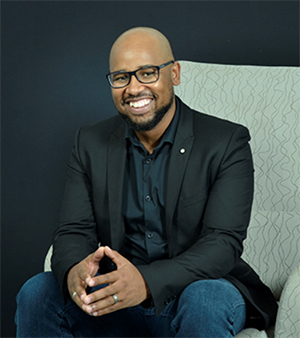
Prof Lindelani Mnguni
The time has come for an education revolution, says Prof Lindelani Mnguni, who is determined to transform society through education. An education activist of note, Mnguni is the Chair of Department of Science and Technology Education in the College of Education and a recipient of the 2018 Principal’s Prize for Research Excellence.
All South Africans have the right to education, which should include access to high-quality learning and teaching support material. To ensure that this becomes a reality for the disadvantaged majority, Mnguni has dedicated his research to teacher education.
One of his research interests is how best to teach Life Sciences to school learners in Grades 10 to 12 and university students. For the subject to find traction among 21st century learners, he is looking at the use of visual models such as computer simulations and animations.
In another research project he looks into the curriculum design in the African context and explores the relevance of science in everyday life.
A practical example is his investigation into what learners are taught in Life Sciences about HIV/Aids. He asked whether the information taught is helping learners to adopt safer lifestyles. His research found it does not, which indicates the curriculum is impractical in real life - something he is striving to address through his research.
To improve science literacy, Mnguni started implementing his research recommendations in small-scale settings to prove that using alternative teaching methods and resources helps learners to understand the material better. "I will take these lessons and bring them back to teacher training so that the next generation of teachers obtain the skills necessary to teach in the 21st century," he said.
Mnguni’s inspiration is not the current generation of researchers.
His two role models are Albert Einstein, world-famous theoretical physicist, and Nikola Tesla, a futurist, because they both broke boundaries.
In the early 1900s, although using different terminology, Tesla was already talking about wireless communication and wireless electricity.
Einstein’s theories and discoveries, including the general theory of relativity and Brownian motion were revolutionary in his day and still apply today. "These people were not consumed with the recycling of research which we do now, where we go to the library to read and draw insight from research that was done by somebody else."
In 2014, Mnguni wrote a paper entitled The theoretical cognitive process of learning using visual models, which discusses what generally happens to a person’s brain when they learn using pictures.
The paper, published in the Netherlands, has already been downloaded more than 3 900 times. In Mnguni’s world, a university is not isolated, but is easily accessible to people in the townships and rural areas. What is being done in universities should intentionally change someone’s life through research that exists for the sustainable development of communities.
Mnguni has been key to a number of national and international collaborations. He has worked on a paper about visual literacy with Trevor Anderson, a professor in Biochemistry Education at Perdue University, USA, and Konrad Schonborn an associate professor of Visualisation and Media Technology from Linkoping University, Sweden. He has also worked with colleagues from the University of Pretoria, University of Johannesburg and the Tshwane University of Technology.
Recently he collaborated with colleagues from Indonesia on a paper about the relevance of the curriculum from a comparative perspective of South Africa and Indonesia.
He has also embarked on a joint research project with scholars from Uppsala and Umea, universities in Sweden and locally with academics from Nelson Mandela University and the University of Zululand.
The impactful research work Mnguni produced from 2016 to 2018 earned him the highly regarded Unisa Principal’s Prize for Research Excellence.
Reflecting on his career accomplishments thus far, Mnguni says: "When I pause and look back from where I come from, I honestly can’t see my footsteps, I just see God’s footsteps all the way."
He obtained his honours degree from the University of KwaZulu-Natal after being allowed to enrol by the head of department without meeting the 60% entry average. At the end of his honours year, he was acknowledged as second best in his group and later earned a distinction for his master’s degree. For his PhD, attained at the University of Pretoria, Mnguni received the best research award and a Dean’s Award for his research.
"To receive the Principal’s Prize at Unisa affirms that anything is possible for an African child," he said.
Seeing education as a revolution, Mnguni changed fields from his original study choice, biochemistry, to teacher education. He thought to himself that there is Julius Malema, a political activist, who wants to change South Africa and the continent from a political perspective, and Patrice Motsepe, who is doing his best, through his foundation, from the economic side of things. "In as much as Julius Malema is saying let’s get the land back from a political point of view, I am saying let’s get the intellect back from an education perspective, by Africanising and indigenising education," he says.
At 35, Mnguni has a bold new vision of how to transform the education system. With at least three decades of research ahead of him before he reaches retirement, there is little doubt that he will be transforming people’s lives.
The Atlas Combined School, a black-owned private school in Tembisa, east of Johannesburg, is testament to what can be achieved through sound research and teaching.
It started as a pre-school run by Kekeletso Moyo. When the children needed to start Grade 1, she wondered which school they would go to, prompting her to start a Grade 1 class. When the learners passed, she went on to establish further grades.
Mnguni was contacted by Moyo in its formative years to better equip and skill the teachers. He went on to conduct most of his research at the school, training teachers and learners in the use of technology and other models.
In 2018, he presented models on Life Sciences to the school’s Grade 11 learners, allowing them to use his laptops to play lesson-based activities and use role play. "I was motivating and teaching them because I have been exposed and wanted them to feed off from me," he said.
Moyo’s first matric group achieved an impressive 76% pass rate in 2018.
Mnguni’s ties with the school continue to strengthen. He supervises Dudrah Moyo, the current director of the school, who recently submitted her master’s thesis.
* By Mpho Moloele, PR and Communications Assistant, Directorate: Research Support
Publish date: 2019-08-15 00:00:00.0
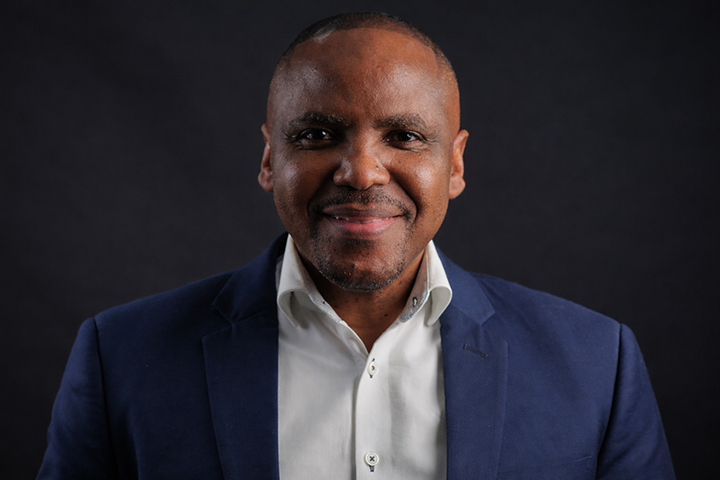 National leader in mathematics education aims to improve outcomes
National leader in mathematics education aims to improve outcomes
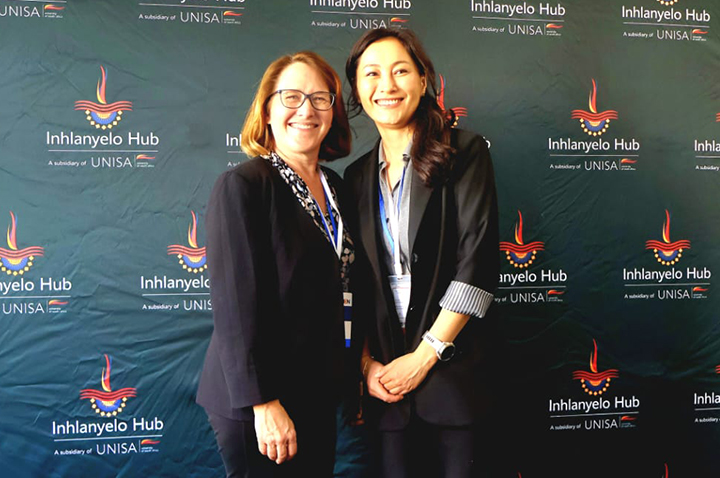 Unisa roundtable focuses on empowering SA women to lead in innovation
Unisa roundtable focuses on empowering SA women to lead in innovation
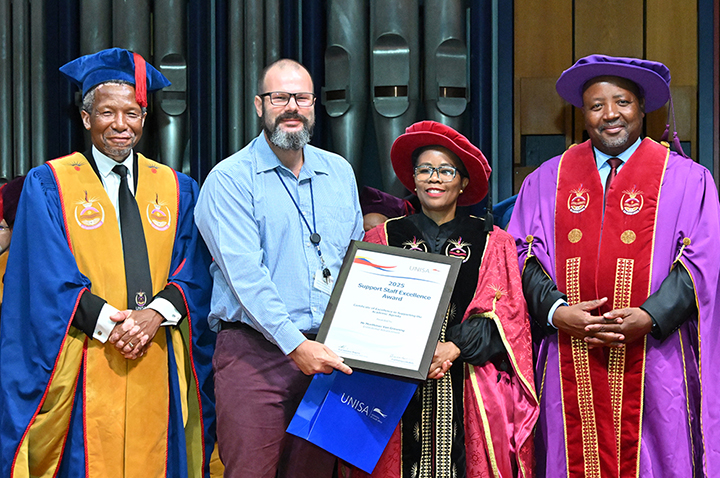 Unisan recognised for web excellence
Unisan recognised for web excellence
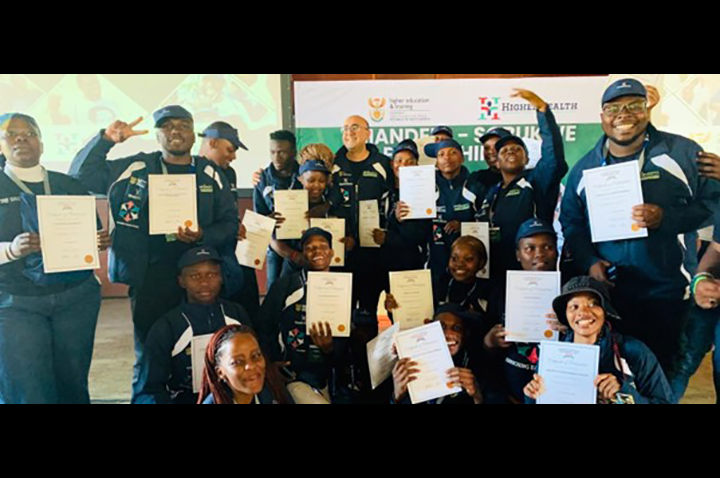 Office of the Dean of Students participates in leadership camp
Office of the Dean of Students participates in leadership camp
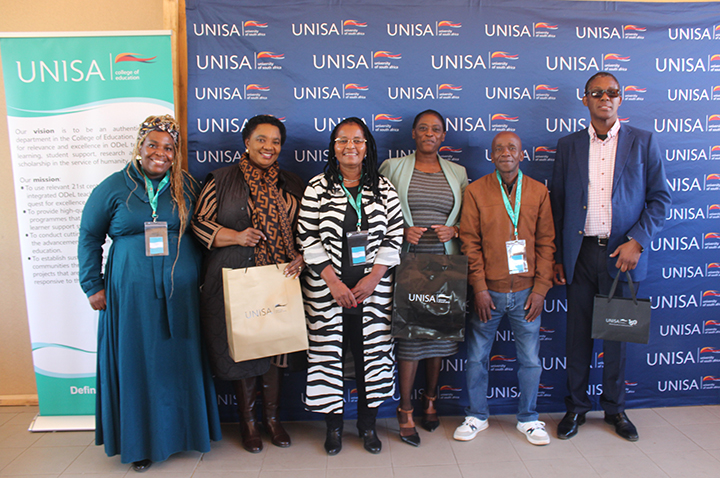 Unisa project fosters digital and pedagogical innovation in Limpopo schools
Unisa project fosters digital and pedagogical innovation in Limpopo schools